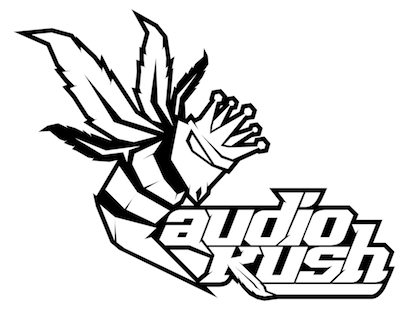Understanding the Importance of Medical Marijuana Certification for Depression and Anxiety Treatment
Over 14 million Americans have occasional bouts of major depression, and nearly 20% of the U.S. population struggles with an anxiety disorder. In response to these epidemics, many people are turning to medical marijuana. Some see it as a natural alternative to traditional pharmaceuticals, which can be habit-forming and carry adverse side effects.
But does cannabis actually present a viable solution for anxiety and depression sufferers? Medical marijuana can be used to alleviate symptoms of anxiety and depression.
Marijuana for Anxiety and Depression
Depression and anxiety are often lumped together as related mental health conditions. While the two conditions often overlap, they’re not exactly the same thing. Depression is characterized by feelings of extreme sadness, hopelessness, and dread. Anxiety is characterized by persistent—sometimes irrational—worry.
Both conditions can have chemical as well as psychological causes, and both can stem from hormonal and/or neurotransmitter imbalances. However, the mechanisms are different. Anxiety is more commonly associated with the body’s fight-or-flight response, whereas depression is a mood disorder.
To understand the effects of cannabis on depression and anxiety, we have to look at each condition individually.
Cannabis for Depression
Tetrahydrocannabinol (THC) and cannabidiol (CBD)—the two most abundant active compounds in cannabis—have both demonstrated antidepressant effects in animal studies. CBD has shown promise for addressing many of the symptoms of depression, although the combined effect of THC and CBD may be better than CBD alone.
THC appears to be effective for treating depression, but high doses might make the condition worse. Indica varieties do seem to have more benefit for depression, though low-doses of sativa may help to boost creativity. While more research involving human subjects is still needed, many claim marijuana does provide benefits for depression.
Cannabis for Anxiety
Research into cannabis for anxiety is limited, but there’s some promise here as well. One study asked more than 400 cannabis consumers to self-report the effectiveness of cannabis on their anxiety symptoms using a 10-point scale. The average score was 8.03, indicating a high level of effectiveness.
Unfortunately, there are few high-quality clinical trials to assess the efficacy on a higher level. But anecdotally, cannabis seems to work for a lot of people. Proper marijuana dosing is key. Cannabis has long been observed for its biphasic effects, meaning that it can often exhibit one effect at low doses and the opposite effect at high doses.
For managing anxiety, indica dominant strains appear to work best.
Why Medical Marijuana Certification Is Important for Anxiety and Depression
As of this writing, 21 states—plus Washington DC and Guam—have legalized recreational marijuana. In these states, you don’t need a medical marijuana card to access cannabis legally. However, if you have a legitimate medical need, it’s still a good idea to get certified. There are several reasons for this:
- With a medical certification, you can consume cannabis under a doctor’s supervision. Your physician can help you with strains, dosing, and other factors to help ensure the best result for your condition.
- A medical certification offers certain protections in many states. For example, states like Arizona grant reasonable legal protections in the workplace. So you generally can’t be fired from your job for cannabis so long as you’re not working in a safety-sensitive role or working for a company that depends on federal contracts.
- In many states, medical marijuana patients have access to a wider array of products intended for medical use—including higher-THC products. Medical patients also have higher possession limits in most cases. In California, for instance, possession is limited to one ounce for recreational customers but 8 ounces for medicinal patients.
- Medical marijuana certification also allows for more relaxed home-grow regulation in some states.
Cannabis for Mental Health: Navigating Qualifying Conditions
It’s worth noting that not all states will allow a medical certification for anxiety or depression. Only a handful of states allow cannabis for anxiety disorders, including New Jersey, Massachusetts, and Nevada. Even fewer states—like Alabama and Oklahoma—will certify a patient for depression.
However, it’s sometimes possible to get certified for a related disorder even if your state doesn’t recognize depression or anxiety. For example, numerous states allow patients to use cannabis to treat PTSD. So if your anxiety has a PTSD component, you might still qualify for certification even if anxiety doesn’t appear on your state’s list of qualifying conditions. The best thing to do is speak with a licensed physician.
Get Certified and Get Started
If you qualify as a patient, it’s absolutely in your best interest to get certified and heed your doctor’s usage recommendations. If you don’t qualify, but your state allows recreational use, make sure to do your homework when using cannabis to treat your depression and anxiety.
Start with a low dose of THC (as low as 5mg to 10mg) and increase gradually as needed. High-CBD, low-THC strains like Harlequin, ACDC, and Charlotte’s Web might be an excellent place to start. For mild symptoms, CBD alone might do the trick. For anxiety, it’s generally best to choose indica strains.
Everyone’s biochemistry is different, and there’s still a lot we have to learn about using cannabis for anxiety and depression. But as more states open the door to safe access, it’s worth exploring the possibilities for yourself.




One Response